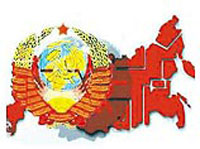The Year 1989: The Beginning of the End
No one could imagine in 1989 that the German Democratic Republic would stop existing in a year, that the USSR would collapse in two, and Czechoslovakia would split into two states in three years. The pullout of Soviet troops from Afghanistan started in February 1989. Over 100,000 scientists and specialists left the country in three years. In return, all Soviet citizens obtained the right to travel abroad freely, the press was given the ultimate freedom, whereas the authorities were turning a blind eye on everything.

The year 1989 was the period which marked the last stage of the collapse of the USSR. The process started at the end of 1973, against the background of the Arab-Israeli war, when Arabs blocked oil shipments to the West. Oil became four times as expensive in a week.
The USSR was executing the program of economic reforms since 1965. Afterwards, the Soviet government decided to scrap the program and close the holes in the economy with stacks of petrodollars. The initiative continued for about a decade. Western countries were developing speedily, which allowed them to reduce the consumption of oil three times. The price on oil began to slide. The situation changed in 1980 because of the war between Iran and Iraq.
Mikhail Gorbachev came to power in the USSR when the nation was going through a very difficult time in its economic and political development. He made a number of attempts to improve the economic position of the country, but they yielded no results.
The point of those economic measures was about the transition from intensive economy to the mixed system of state-run and market-oriented economy. Deng Xiaoping launched such a reform in China during the 1980s. It was supposed that all enterprise would be given an opportunity to cooperate with each other with the help of market mechanisms under the control of the state, which would have the right to regulate the prices on strategically important goods and services.
It just so happened that new enterprises and technologies, which were strongly dependent on imported spare parts, could not be launched, while the financial resources were exhausted. Whole chains of inter - dependent productions would be stopped . The USSR was raising many loans, one after another, and turned into a huge debtor in 1988.
A friend is a good friend until he turns poor. The GDR was looking towards the FRG, other creditors wanted the USSR to pull out its troops from Afghanistan, color revolutions were shaking the countries of the socialist camp, whereas union republics were tormenting the impoverished nation. It was the grand finale of the Cold War.
The living standard in the country was worsening speedily. Gorbachev was losing his popularity nationwide. Everyone was looking for a way out, desperately clinging even to absurd ideas. Yeltsin and Yakovlev appeared on the wave of national protests. Yeltsin was the voice of other people, the majority of whom was looking for a way to the top. The illness of politics dominating over economy has developed into the acute form.
The collapse of the Berlin Wall triggered the collapse of the Soviet Union politically and economically.
Anatoly Vasserman for
Express Gazeta
Russia Today: 'Russia has no imperial ambitions' - Gorbachev
Subscribe to Pravda.Ru Telegram channel, Facebook, RSS!


